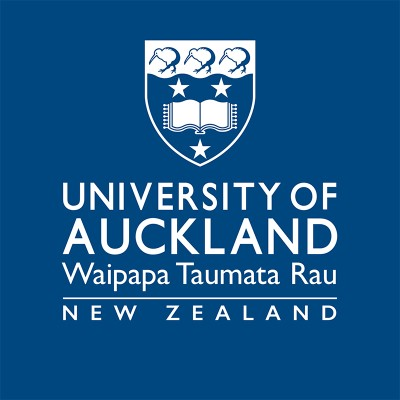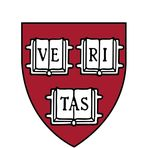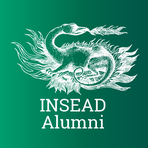Navigating the Maze of Master's Programs in Global Trade** **
July 26, 2024, 9:04 am

Location: New Zealand, Auckland
Employees: 5001-10000
Founded date: 1883
Total raised: $1.4M

Location: United States, Massachusetts, Cambridge
Employees: 10001+
Founded date: 1636
Total raised: $303.77K
** In a world where trade is the lifeblood of economies, choosing the right master's program can feel like finding a needle in a haystack. The Hinrich Foundation has stepped in to illuminate this path. Their newly launched guide serves as a compass for prospective students, helping them navigate the complex landscape of international business and trade education.
The Hinrich Foundation Guide to Master's in International Business and Trade is a beacon for those seeking to advance their careers in global trade. Released on July 23, 2024, this guide is a treasure trove of insights, crafted with the expertise of trade professionals and seasoned academics. It’s not just a list of programs; it’s a roadmap to success.
The guide begins with a clear overview of the benefits of pursuing a master's degree in this field. It highlights how such a degree can open doors to leadership roles in global trade. In an era where trade dynamics are constantly shifting, having a solid educational foundation is crucial. This guide emphasizes that knowledge is power, especially in a world where trade policies and logistics can change overnight.
Quality matters. The guide outlines specific criteria for evaluating master's programs. It encourages students to look beyond flashy marketing and focus on core content. Essential subjects include trade policy, logistics, supply chain management, and trade finance. These are the building blocks of a successful career in global trade. The guide also stresses the importance of soft skills and future skills—attributes that are increasingly vital in today’s interconnected world.
But knowledge alone isn’t enough. The guide underscores the need for practical skills development. It advocates for programs that offer real-world experience, industry connections, and access to practitioner professors. These elements are crucial for bridging the gap between theory and practice. Students need to be prepared for the challenges they will face in the field.
One of the standout features of the Hinrich Foundation Guide is its profiles of 20 exemplary master's programs. These programs serve as benchmarks for quality. They range from prestigious MBAs at institutions like Harvard and INSEAD to specialized master's programs at the International Institute in Geneva and the Thunderbird School of Global Management. Each program is evaluated based on rigorous criteria, ensuring that students can make informed decisions.
The guide also provides key questions for students to consider when selecting a program. This is where the guide truly shines. It empowers students to take charge of their educational journey. By asking the right questions, they can uncover the nuances of each program and determine which aligns best with their career aspirations.
In addition to program evaluations, the guide offers a wealth of resources for students, educators, and professionals. It serves as a hub for information, connecting users with valuable trade resources. This is particularly important in a field where staying updated is essential. The global trade landscape is ever-evolving, and continuous learning is key to staying ahead.
The Hinrich Foundation itself is a philanthropic organization dedicated to advancing sustainable global trade. Its mission aligns perfectly with the guide’s objectives. By supporting research and education, the foundation fosters a deeper understanding of trade dynamics. This commitment to education is evident in the quality of the guide.
As the world becomes more interconnected, the demand for skilled professionals in global trade continues to grow. Companies are seeking individuals who can navigate complex trade regulations, manage supply chains, and drive international business strategies. A master's degree in international business and trade can be a powerful tool in this pursuit.
However, not all programs are created equal. The Hinrich Foundation Guide acts as a filter, helping students sift through the noise. It provides a structured approach to program selection, ensuring that students can identify the best fit for their needs. This is particularly valuable in a market flooded with options.
In conclusion, the Hinrich Foundation Guide to Master's in International Business and Trade is a vital resource for anyone considering a career in global trade. It combines academic rigor with practical insights, creating a comprehensive tool for prospective students. By focusing on quality, practical skills, and industry connections, the guide empowers students to make informed decisions. In a world where trade is the engine of growth, this guide is the key to unlocking potential. The journey may be complex, but with the right tools, students can navigate it with confidence.
The Hinrich Foundation Guide to Master's in International Business and Trade is a beacon for those seeking to advance their careers in global trade. Released on July 23, 2024, this guide is a treasure trove of insights, crafted with the expertise of trade professionals and seasoned academics. It’s not just a list of programs; it’s a roadmap to success.
The guide begins with a clear overview of the benefits of pursuing a master's degree in this field. It highlights how such a degree can open doors to leadership roles in global trade. In an era where trade dynamics are constantly shifting, having a solid educational foundation is crucial. This guide emphasizes that knowledge is power, especially in a world where trade policies and logistics can change overnight.
Quality matters. The guide outlines specific criteria for evaluating master's programs. It encourages students to look beyond flashy marketing and focus on core content. Essential subjects include trade policy, logistics, supply chain management, and trade finance. These are the building blocks of a successful career in global trade. The guide also stresses the importance of soft skills and future skills—attributes that are increasingly vital in today’s interconnected world.
But knowledge alone isn’t enough. The guide underscores the need for practical skills development. It advocates for programs that offer real-world experience, industry connections, and access to practitioner professors. These elements are crucial for bridging the gap between theory and practice. Students need to be prepared for the challenges they will face in the field.
One of the standout features of the Hinrich Foundation Guide is its profiles of 20 exemplary master's programs. These programs serve as benchmarks for quality. They range from prestigious MBAs at institutions like Harvard and INSEAD to specialized master's programs at the International Institute in Geneva and the Thunderbird School of Global Management. Each program is evaluated based on rigorous criteria, ensuring that students can make informed decisions.
The guide also provides key questions for students to consider when selecting a program. This is where the guide truly shines. It empowers students to take charge of their educational journey. By asking the right questions, they can uncover the nuances of each program and determine which aligns best with their career aspirations.
In addition to program evaluations, the guide offers a wealth of resources for students, educators, and professionals. It serves as a hub for information, connecting users with valuable trade resources. This is particularly important in a field where staying updated is essential. The global trade landscape is ever-evolving, and continuous learning is key to staying ahead.
The Hinrich Foundation itself is a philanthropic organization dedicated to advancing sustainable global trade. Its mission aligns perfectly with the guide’s objectives. By supporting research and education, the foundation fosters a deeper understanding of trade dynamics. This commitment to education is evident in the quality of the guide.
As the world becomes more interconnected, the demand for skilled professionals in global trade continues to grow. Companies are seeking individuals who can navigate complex trade regulations, manage supply chains, and drive international business strategies. A master's degree in international business and trade can be a powerful tool in this pursuit.
However, not all programs are created equal. The Hinrich Foundation Guide acts as a filter, helping students sift through the noise. It provides a structured approach to program selection, ensuring that students can identify the best fit for their needs. This is particularly valuable in a market flooded with options.
In conclusion, the Hinrich Foundation Guide to Master's in International Business and Trade is a vital resource for anyone considering a career in global trade. It combines academic rigor with practical insights, creating a comprehensive tool for prospective students. By focusing on quality, practical skills, and industry connections, the guide empowers students to make informed decisions. In a world where trade is the engine of growth, this guide is the key to unlocking potential. The journey may be complex, but with the right tools, students can navigate it with confidence.
